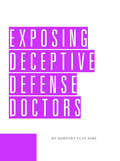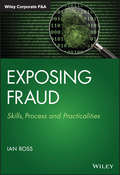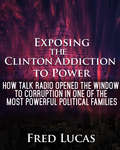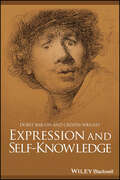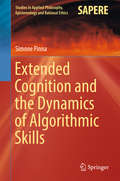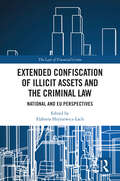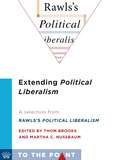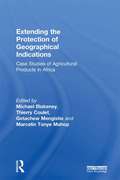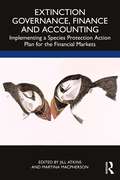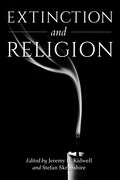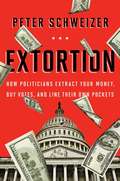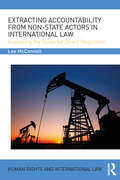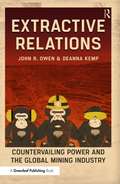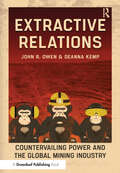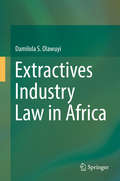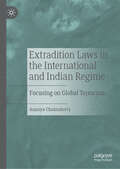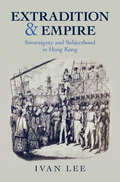- Table View
- List View
Exposed: A Rosato & DiNunzio Novel (A Rosato & DiNunzio Novel #5)
by Lisa Scottoline<P>In this New York Times bestselling novel, a battle for justice pits partner against partner... <P>Mary DiNunzio wants to represent her old friend Simon Pensiera, a sales rep who was wrongly fired by his company, but her partner Bennie Rosato represents the parent company. When she confronts Mary, explaining this is a conflict of interest, an epic battle of wills and legal strategy between the two ensues—ripping the law firm apart, forcing everyone to take sides and turning friend against friend. <P><b>A New York Times Bestseller</b>
Exposed: A Rosato And Dinunzio Novel (Rosato & DiNunzio #5)
by Lisa ScottolineFrom the bestselling author of CORRUPTED and DAMAGED comes the fifth legal thriller in Lisa Scottoline's electrifying Rosato & Di Nunzio series. Perfect for fans of Lynda La Plante and Michael Connelly. When Mary DiNunzio takes on a case, she is determined to win, despite the fact that her partner Bennie Rosato is representing the opposition. A war of wills and legal strategy between Mary and Bennie forces everyone in the company to choose a side, and the law firm faces being torn apart.'Scottoline is a powerhouse' David Baldacci
Exposed: How Revealing Your Data and Eliminating Privacy Increases Trust and Liberates Humanity
by Ben MalisowDiscover why privacy is a counterproductive, if not obsolete, concept in this startling new book It's only a matter of time-- the modern notion of privacy is quickly evaporating because of technological advancement and social engagement. Whether we like it or not, all our actions and communications are going to be revealed for everyone to see. Exposed: How Revealing Your Data and Eliminating Privacy Increases Trust and Liberates Humanity takes a controversial and insightful look at the concept of privacy and persuasively argues that preparing for a post-private future is better than exacerbating the painful transition by attempting to delay the inevitable. Security expert and author Ben Malisow systematically dismantles common notions of privacy and explains how: Most arguments in favor of increased privacy are wrong Privacy in our personal lives leaves us more susceptible to being bullied or blackmailed Governmental and military privacy leads to an imbalance of power between citizen and state Military supremacy based on privacy is an obsolete concept Perfect for anyone interested in the currently raging debates about governmental, institutional, corporate, and personal privacy, and the proper balance between the public and the private, Exposed also belongs on the shelves of security practitioners and policymakers everywhere.
Exposed: Why Our Health Insurance Is Incomplete and What Can Be Done about It
by Christopher T. RobertsonDemocrats and Republicans fight endlessly over health care, but neither side disputes one of the system’s most basic flaws: the foisting on patients of substantial costs through deductibles, copayments, and coinsurance. Marshalling a decade of research, Christopher Robertson shows why this model is dysfunctional and offers ideas for improvement.
Exposing Deceptive Defense Doctors
by Dorothy SimsExposing Deceptive Defense Doctors gives you tactics, questions, arguments, and forms from a lawyer who has made a specialty out of deposing defense doctors for other attorneys. This book will enable you to reveal dishonesty, bias, over-reaching, and incompetence by defense doctors in multiple specialties. Some defense doctors manipulate exams and spin the science. Luckily, their defenses are quite predictable, and can be readily dealt with once you learn how to recognize and counter them. Dorothy Clay Sims explains how, revealing the games DMEs play and showing you proven techniques and questions for making juries angry at the misrepresentation. This book exposes DME defense tactics, explains where they are vulnerable, provides citations to the underlying research, and then gives you the exact questions to use in depositions and trial examinations to exploit the weaknesses in DME testimony. Exposing Deceptive Defense Doctors gives you tactics, questions, arguments, and forms from a lawyer who has made a specialty out of deposing defense doctors for other attorneys. This book will enable you to reveal dishonesty, bias, over-reaching, and incompetence by defense doctors in multiple specialties. Some defense doctors manipulate exams and spin the science. Luckily, their defenses are quite predictable, and can be readily dealt with once you learn how to recognize and counter them. Dorothy Clay Sims explains how, revealing the games DMEs play and showing you proven techniques and questions for making juries angry at the misrepresentation. This book exposes DME defense tactics, explains where they are vulnerable, provides citations to the underlying research, and then gives you the exact questions to use in depositions and trial examinations to exploit the weaknesses in DME testimony.
Exposing Fraud
by Ian RossForeword by James D. Ratley, CFE, President and CEO, Association of Certified Fraud Examiners Beyond the basics--tools for applied fraud management In Exposing Fraud: Skills, Process, and Practicalities, anti-fraud expert Ian Ross provides both ideas and practical guidelines for applying sound techniques for fraud investigation and detection and related project management. The investigative principles in this book are truly universal and can be applied anywhere in the world to deal with any of the range of fraud types prevalent in today's business environments. Topics covered include cyber fraud, the psychology of fraud, data analysis techniques, and the role of corporate and international culture in criminal behavior, among many others. Ensure an optimal outcome to fraud investigations by mastering real-world skills, from interviewing and handling evidence to conducting criminal proceedings. As technologies and fraud techniques become more complex, fraud investigation must increase in complexity as well. However, this does not mean that time-tested strategies for detecting criminals have become obsolete. Instead, it means that a hands-on approach to fraud detection and management is needed more than ever. The book does just that: Takes a unique practical approach to the business of detecting, understanding, and dealing with fraud of all types Aids in the development of key skills, including conducting investigations and managing fraud risk Covers issues related to ethically and efficiently handling impulsive and systemic fraud, plus investigating criminals who may be running multiple scams Addresses fraud from a global perspective, considering cultural and psychological factors that influence fraudsters Unlike other fraud investigation books on the market, Exposing Fraud develops the ethical and legal foundation required to apply theory and advice in real-world settings. From the simple to the complex, this book demonstrates the most effective application of anti-fraud techniques.
Exposing the Clinton Addiction to Power
by Fred LucasThe subject of FBI investigations and the leaders of the most controversial political organization in America, the Clintons have long been the subject of talk radio. Fred Lucas opens up those conversations that tore open the secrets currently being examined by the FBI. For those interested in the dynamics of Washington politics, the undercurrents of the Establishment and the lust for power that moves those who practice politics in Washington today, Fred Lucas brings those readers into the mix.
Exposure: Poisoned Water, Corporate Greed, and One Lawyer's Twenty-Year Battle against DuPont
by Robert Bilott&“For Erin Brockovich fans, a David vs. Goliath tale with a twist&” (The New York Times Book Review)—the incredible true story of the lawyer who spent two decades building a case against DuPont for its use of the hazardous chemical PFOA, uncovering the worst case of environmental contamination in history—affecting virtually every person on the planet—and the conspiracy that kept it a secret for sixty years. The story that inspired Dark Waters, the major motion picture from Focus Features starring Mark Ruffalo and Anne Hathaway, directed by Todd Haynes.1998: Rob Bilott is a young lawyer specializing in helping big corporations stay on the right side of environmental laws and regulations. Then he gets a phone call from a West Virginia farmer named Earl Tennant, who is convinced the creek on his property is being poisoned by runoff from a neighboring DuPont landfill, causing his cattle and the surrounding wildlife to die in hideous ways. Earl hasn&’t even been able to get a water sample tested by any state or federal regulatory agency or find a local lawyer willing to take the case. As soon as they hear the name DuPont—the area&’s largest employer—they shut him down. Once Rob sees the thick, foamy water that bubbles into the creek, the gruesome effects it seems to have on livestock, and the disturbing frequency of cancer and other health problems in the area, he&’s persuaded to fight against the type of corporation his firm routinely represents. After intense legal wrangling, Rob ultimately gains access to hundreds of thousands of pages of DuPont documents, some of them fifty years old, that reveal the company has been holding onto decades of studies proving the harmful effects of a chemical called PFOA, used in making Teflon. PFOA is often called a &“forever chemical,&” because once in the environment, it does not break down or degrade for millions of years, contaminating the planet forever. The case of one farmer soon spawns a class action suit on behalf of seventy thousand residents—and the shocking realization that virtually every person on the planet has been exposed to PFOA and carries the chemical in his or her blood. What emerges is a riveting legal drama &“in the grand tradition of Jonathan Harr&’s A Civil Action&” (Booklist, starred review) about malice and manipulation, the failings of environmental regulation; and one lawyer&’s twenty-year struggle to expose the truth about this previously unknown—and still unregulated—chemical that we all have inside us.
Expression and Self-Knowledge (Great Debates in Philosophy)
by Crispin Wright Dorit Bar-OnProvides a timely and original contribution to the debate surrounding privileged self-knowledge Contemporary epistemologists and philosophers of mind continue to find puzzling the nature and source of privileged self-knowledge: the ordinary and effortless ‘first-person’ knowledge we have of our own sensations, moods, emotions, beliefs, desires, and hopes. In Expression and Self-Knowledge, Dorit Bar-On and Crispin Wright articulate their joint dissatisfaction with extant accounts of self-knowledge and engage in a sustained and substantial critical debate over the merits of an expressivist approach to the topic. The authors incorporate cutting-edge research while defending their own alternatives to existing approaches to so-called ‘first-person privilege’. Bar-On defends her neo-expressivist account, addressing the objection that neo-expressivism fails to provide an adequate epistemology of ordinary self-knowledge, and addresses new objections levelled by Wright. Wright then presents an alternative pluralist approach, and Bar-On argues in response that pluralism faces difficulties neo-expressivism avoids. Providing invaluable insights on a hotly debated topic in epistemology and philosophy of mind, Expression and Self-Knowledge: Presents an in-depth debate between two leading philosophers over the expressivist approach Offers novel developments and penetrating criticisms of the authors' respective views Features two different perspectives on the influential remarks on expression and self-knowledge found in Wittgenstein’s later writings Includes four jointly written chapters that offer a critical overview of prominent existing accounts, which provide a useful advanced introduction to the subject.Expression and Self-Knowledge is essential reading for epistemologists, philosophers of mind and language, psychologists with an interest in self-knowledge, and researchers and graduate students working in expression, expressivism, and self-knowledge.
Expressionism in Philosophy: Spinoza
by Gilles DeleuzeIn this remarkable work, Gilles Deleuze, the renowned French philosopher, reflects on one of the thinkers of the past who most influenced his own sweeping reconfiguration of the tasks of philosophy. For Deleuze, Spinoza, along with Nietzsche and Lucretius, conceived of philosophy as an enterprise of liberation and radical demystification. He locates in Spinoza “a set of affects, a kinetic determination, an impulse” and makes Spinoza into “an encounter, a passion.”Expressionism in Philosophy was the culmination of a series of monographic studies by Deleuze (on Hume, Bergson, Nietzsche, Proust, Kant, and Sacher-Masoch) and prepared the transition from these abstract treatments of historical schemes of experience to the nomadology of Capitalism and Schizophrenia (Anti-Oedipus and A Thousand Plateaus, co-authored with Félix Guattari). Thus, Expressionism in Philosophy is both a pivotal reading of Spinoza’s work and a crucial text within the development of Deleuze’s thought.
Extended Cognition and the Dynamics of Algorithmic Skills
by Simone PinnaThis book describes a novel methodology for studying algorithmic skills, intended as cognitive activities related to rule-based symbolic transformation, and argues that some human computational abilities may be interpreted and analyzed as genuine examples of extended cognition. It shows that the performance of these abilities relies not only on innate neurocognitive systems or language-related skills, but also on external tools and general agent-environment interactions. Further, it asserts that a low-level analysis, based on a set of core neurocognitive systems linking numbers and language, is not sufficient to explain some specific forms of high-level numerical skills, like those involved in algorithm execution. To this end, it reports on the design of a cognitive architecture for modeling all the relevant features involved in the execution of algorithmic strategies, including external tools, such as paper and pencils. The first part of the book discusses the philosophical premises for endorsing and justifying a position in philosophy of mind that links a modified form of computationalism with some recent theoretical and scientific developments, like those introduced by the so-called dynamical approach to cognition. The second part is dedicated to the description of a Turing-machine-inspired cognitive architecture, expressly designed to formalize all kinds of algorithmic strategies.
Extended Confiscation of Illicit Assets and the Criminal Law: National and EU Perspectives (The Law of Financial Crime)
by Elżbieta Hryniewicz-LachThe European Union is developing instruments which allow law enforcement and judicial authorities to freeze, seize and confiscate illicit assets in a simplified way. Oversimplification of confiscation procedures may, however, result in violation of fundamental rights and general principles of law aimed at ensuring protection of individuals against interference from the State. Such risk exists in particular in the case of extended confiscation, where assets forfeited go beyond what is proven as resulting from a concrete criminal offence. This book drawing on the results of a large international project, brings together a group of experts to determine the requirements needed to achieve compliance of extended confiscation with the fundamental rights and legal principles included in the Charter of Fundamental Rights of the EU, European Convention of Human Rights and in national legal orders of the EU Member States. Divided into three parts, the first details the national perspectives of 14 countries. The second part presents analysis of extended confiscation in comparative terms. The third and final parts examine extended confiscation in the context of the EU criminal law. The book thus provides a detailed analysis of extended confiscation from a number of perspectives and will be an invaluable resource for academics, researchers and policymakers working in the areas of Financial Crime, Comparative Criminal Justice and Human Rights Law.
Extending Political Liberalism: A Selection from Rawls's Political Liberalism, edited by Thom Brooks and Martha C. Nussbaum (To the Point)
by Martha C. NussbaumWidely hailed as one of the most significant works in modern political philosophy, John Rawls's Political Liberalism (1993) defended a powerful vision of society that respects reasonable ways of life, both religious and secular. These core values have never been more critical as anxiety grows over political and religious difference and new restrictions are placed on peaceful protest and individual expression. In her introduction to the volume, Martha Nussbaum discusses the main themes of Political Liberalism and puts them into the context of contemporary philosophical debates.
Extending the Protection of Geographical Indications: Case Studies of Agricultural Products in Africa
by Michael Blakeney Thierry Coulet Getachew Mengistie Marcelin Tonye MahopThe TRIPS Agreement (for trade-related intellectual property rights) provides for the general protection of geographical indications (GIs) of product origin, including for example the special protection of wines and spirits and for the creation of a multilateral register for wines. The African Group of countries has been in the forefront of countries agitating in the World Trade Organization TRIPS Council for the extension of this special protection and of the multilateral register to industries which are of interest to developing countries, primarily agriculture. The so-called "extension question" is the central feature of the Doha Development Agenda at both the WTO and World Intellectual Property Organization. This book provides some empirical evidence and applied legal and economic reasoning to this debate. It provides both a general review of the key issues and a series of case studies from six Anglophone and four Francophone countries in Africa. These focus on major agricultural commodities such as coffee, cotton, cocoa and tea, as well as more specific and local products such as Argan oil and Oku white honey.
Exterminate All the Brutes: One Man's Odyssey into the Heart of Darkness and the Origins of European Genocide
by Joan Tate Sven LindqvistChosen as one of the New Internationalist's best books of the year, "Exterminate All the Brutes" is a searching examination of Europe's dark history in Africa and the origins of genocide. Using Joseph Conrad's "Heart of Darkness" as his point of departure, Sven Lindqvist takes us on a haunting tour through the colonial past, interwoven with a modern-day travelogue. By retracing the steps of European explorers, missionaries, politicians, and historians in Africa from the late eighteenth century onward, the author exposes the roots of genocide in Africa via his own journey through the Saharan desert.
Extinction Governance, Finance and Accounting: Implementing a Species Protection Action Plan for the Financial Markets
by Jill AtkinsThe planet is currently experiencing a mass extinction event, with human and business activity being the root cause of species loss and habitat destruction. Industries, companies, banks, investors, accountants and auditors have all played their role. This book explores how they can also provide a solution. The book presents plans, metrics, frameworks, mechanisms and financial innovations that can be, and are being, implemented through the financial markets in order to save and protect species, enhance biodiversity and, at the same time, preserve the financial markets and the business world. This biodiversity handbook addresses the intersection between species extinction and the global capitalist system. With contributions from leading non-governmental organisations such as the Capitals Coalition, Business for Nature, the Ecojustice Foundation, ShareAction and the Endangered Wildlife Trust, plus senior researchers in the field, as well as industry experts from Moody’s, EOS at Hermes Federated Investment Management, BlueBay Asset Management, ODDO BHF Asset Management and OSSIAM (to mention just a few), this book is at the forefront of addressing the crucially important topics of extinction accounting, finance and governance. Drawing on leading research, the book is written in an accessible style and is relevant to researchers and students in the fields of sustainability, governance, accounting, finance, corporate social responsibility and corporate governance. It is essential reading for investors, responsible investors, bankers, business leaders and policy makers in the field of sustainable financial markets. Given the interdisciplinary nature of this book, it is useful to conservationists, ecologists and others involved in species and biodiversity protection.
Extinction and Religion (Religion and the Human)
by Timothy B. Leduc Catherine Keller Maria Nita Lisa H. Sideris Willis Jenkins Catherine Rigby James HatleyHuman-caused extinctions have never been so prominent in our political and cultural landscape. Extinction and Religion is a collection of wide-ranging chapters that explore the implications for religious faith and experience as it relates to a "sixth mass extinction" in Earth's history. Further it seeks to answer the question as to how religious and spiritual practices are shaping responses to the crisis?Edited by Jeremy H. Kidwell and Stefan Skrimshire, this collection aims to set a new postsecular agenda, articulating the questions, challenges, and ways forward for thinking about religion in an age of mass extinction rather than provide responses from world religions in isolation. It covers subjects such as the multitude of challenges posed by mass extinction to beliefs about the future of humanity, death and the afterlife, the integrity of creation, and the relationship between human and nonhuman life.Wide ranging and incisive, Extinction and Religion amply demonstrates the many ways in which the threat of extinction profoundly affects our faith and religious life worlds.
Extortion: How Politicians Extract Your Money, Buy Votes, and Line Their Own Pockets
by Peter SchweizerA bombshell investigation reveals how Washington really works: politicians extort money from us, then use it to buy each other’s votes. Best-selling author Peter Schweizer reveals: *Obama’s "Protection Money": How the Obama Administration targeted industries for criminal investigation but chose not to pursue key political donors. *John Boehner’s "Tollbooth": How the Speaker of the House extracts money by soliciting political donations before he will hold crucial votes on the House floor. *The "Slush Fund": How politicians extract "campaign contributions" and then convert them to bankroll lavish lifestyles complete with limos, private jets, golf at five-star resorts, fine wines, and cash for family members. *Capitol Hill’s "Underground Economy": How congressmen use a little-known loophole that allows them to secretly link their votes to cash. Extortion finally makes clear why Congress is so dysfunctional: it’s all about making money, not making law.
Extracting Accountability from Non-State Actors in International Law: Assessing the Scope for Direct Regulation (Human Rights and International Law)
by Lee James McConnellThe human rights of communities in many resource-rich, weak governance States are adversely affected, not only by the acts of States and their agents, but also by powerful non-State actors. Contemporary phenomena such as globalisation, privatisation and the proliferation of internal armed conflict have all contributed to the increasing public influence of these entities and the correlative decline in State power. This book responds to the persistent challenges stemming from non-State actors linked to extractive industries. In light of the intersecting roles of multinational enterprises and non-State armed groups in this context, these actors are adopted as the primary analytical vehicles. The operations of these entities highlight the practical flaws of existing accountability regimes and permit an exploration of the theoretical challenges that preclude their direct legal regulation at the international level. Drawing insights from discursive democracy, compliance theories and the Pure Theory of Law, the book establishes a conceptual foundation for the creation of binding international obligations addressing non-State actors. Responding to the recent calls for a binding business and human rights treaty at the UN Human Rights Council, and the growing influence of armed non-State actors, the book makes a timely contribution to debates surrounding the direction of future developments in the field of international human rights law.
Extractions
by Michal Rachel NahmanMichal Nahman traces different kinds of 'extraction': the practices of human egg harvesting in different national contexts; the political economic consequences of such extraction for the women involved and the ways in which this has consequences for nationalism and race or 'Israeli extraction'.
Extractive Relations: Countervailing Power and the Global Mining Industry
by John R. Owen Deanna KempExtractive Relations explores the nature of industrial power and its role in shaping what we understand to be the global mining sector. The authors examine issues at the forefront of contemporary debates: corporate obligations in safeguarding the rights of people displaced by mining, the recognition of community rights and interests in supporting or opposing mining developments, the handling of non-judicial grievances and workability of corporate remedy systems, and the logic of community relations departments in navigating these issues inside and outside of the typical modern mining establishment. The authors develop a unique theoretical approach that highlights the different types and uses of power in these settings. This perspective is supported by the authors' own sustained engagement with the mining sector over many years, drawing on cases from over twenty countries. The analysis of these issues from both 'inside' and 'outside' the sector is a key point of differentiation. For readers seeking to understand how mining companies interpret and interact with the communities and interests around their operations, this book provides invaluable insight and analysis.
Extractive Relations: Countervailing Power and the Global Mining Industry
by John R. Owen Deanna KempExtractive Relations explores the nature of industrial power and its role in shaping what we understand to be the global mining sector. The authors examine issues at the forefront of contemporary debates: corporate obligations in safeguarding the rights of people displaced by mining, the recognition of community rights and interests in supporting or opposing mining developments, the handling of non-judicial grievances and workability of corporate remedy systems, and the logic of community relations departments in navigating these issues inside and outside of the typical modern mining establishment. The authors develop a unique theoretical approach that highlights the different types and uses of power in these settings. This perspective is supported by the authors' own sustained engagement with the mining sector over many years, drawing on cases from over twenty countries. The analysis of these issues from both 'inside' and 'outside' the sector is a key point of differentiation. For readers seeking to understand how mining companies interpret and interact with the communities and interests around their operations, this book provides invaluable insight and analysis.
Extractives Industry Law in Africa
by Damilola S. OlawuyiThe book provides a systematic examination of the legal, fiscal and institutional frameworks for the commercial development of petroleum and solid mineral resources in Africa. First, it considers the values, assumptions, and guiding principles underpinning legislation and governance in Africa’s extractive sector. It then provides detailed and comparative evaluations of regulatory frameworks, pricing, local content, procurement, sales, and contractual arrangements across African extractive industries. Further, the book assesses how questions of business and human rights risks, accountability, corporate social responsibility, waste and pollution control, environmental justice, and participatory development have been addressed to date, and how they could be addressed better in the future. Enhancing readers’ understanding of the geography, sources and scope of extractive resources in Africa, the book explains how corporations can effectively identify, mitigate and prevent legal and business risks when investing in African extractive industries. Lastly, it discusses the innovative legal strategies and tools needed to achieve a sustainable and rights-based extractive industry.Written in a user-friendly style, the book offers a valuable resource for corporations, investors, environmental and human rights administrators, advocates, policymakers, judges, international negotiators, government officials and consultants who advise on, or are interested in, petroleum and solid mineral investments in Africa. It also offers students and researchers an authoritative guidebook to the current state of extractive industry laws and institutions in Africa. Numerous examples of how international legal norms could be used to help revitalize the underlying legal and fiscal regimes in African extractive industries – to make them more robust, accountable, sustainable and rights-based – round out the coverage
Extradition Laws in the International and Indian Regime: Focusing on Global Terrorism
by Ananya ChakrabortyThe book examines the international treaty regimes and the Indian laws in depth. It also looks into the landmark cases, decided by both, the domestic courts in India and the international tribunals. The book would give an understanding between the concepts of extradition in relation to terrorism-related cases. It would provide an in-depth understanding of the inter-relatedness of the various branches of International law and the municipal laws as well.
Extradition and Empire: Sovereignty and Subjecthood in Hong Kong (Studies in Legal History)
by Ivan LeeIn the first book-length study of the imperial history of extradition in Hong Kong, Ivan Lee shows how British judges, lawyers, and officials navigated the nature of extradition, debated its legalities, and distinguished it over time from other modalities of criminal jurisdiction – including deportation, rendition, and trial and punishment under territorial and extraterritorial laws. These complex debates were rooted in the contested legal status of Chinese subjects under the Opium War treaties of 1842–43. They also intersected wider shifts and tensions in British ideas of territorial sovereignty, criminal justice and procedure, and the legal rights and liabilities of British subjects and alien persons in British territory. By the 1870s, a new area of imperial law emerged as Britain incorporated a frontier colony into an increasingly territorial and legally homogenous empire. This important perspective revises our understanding of the legal origins of colonial Hong Kong and British imperialism in China.




